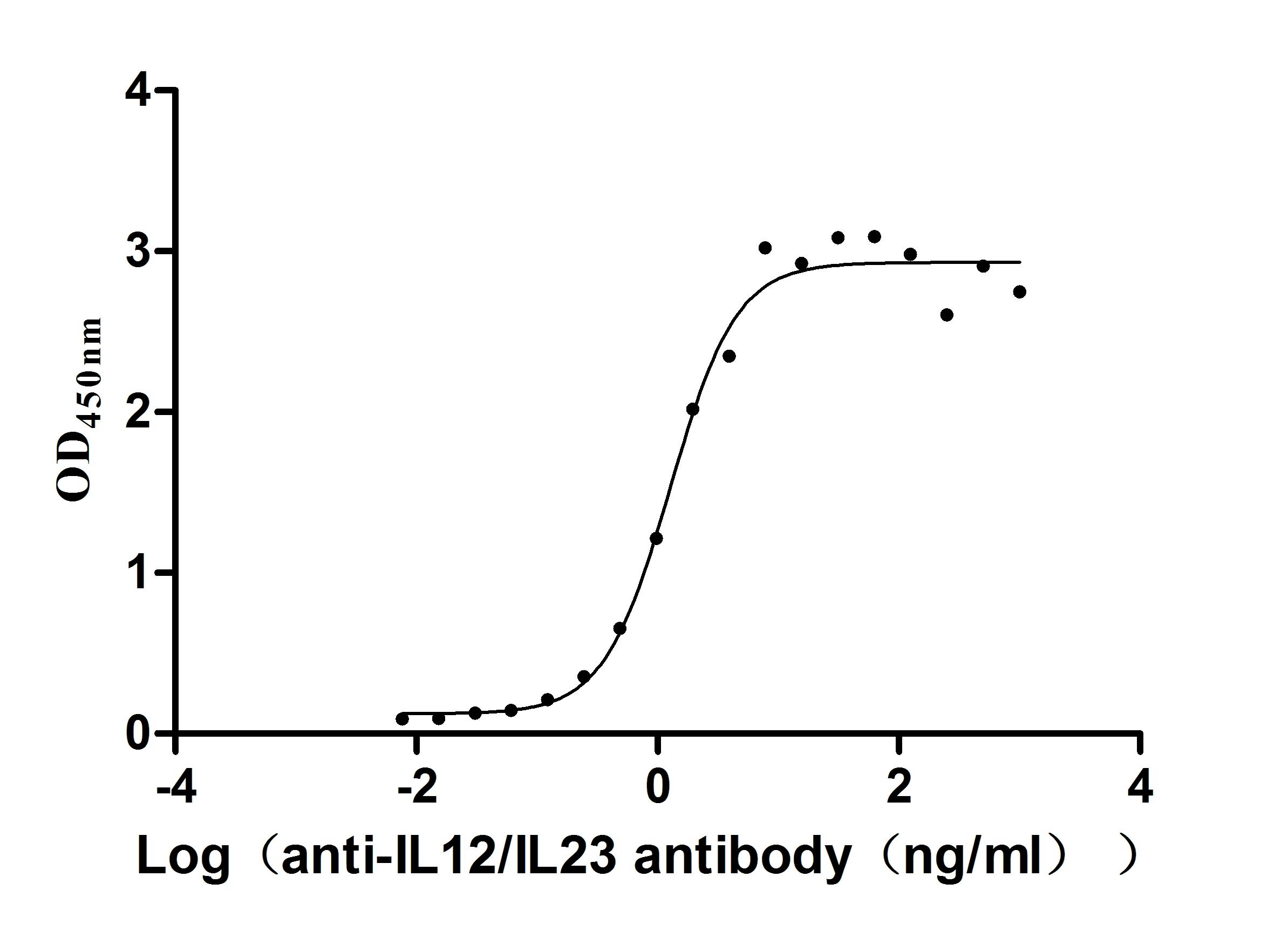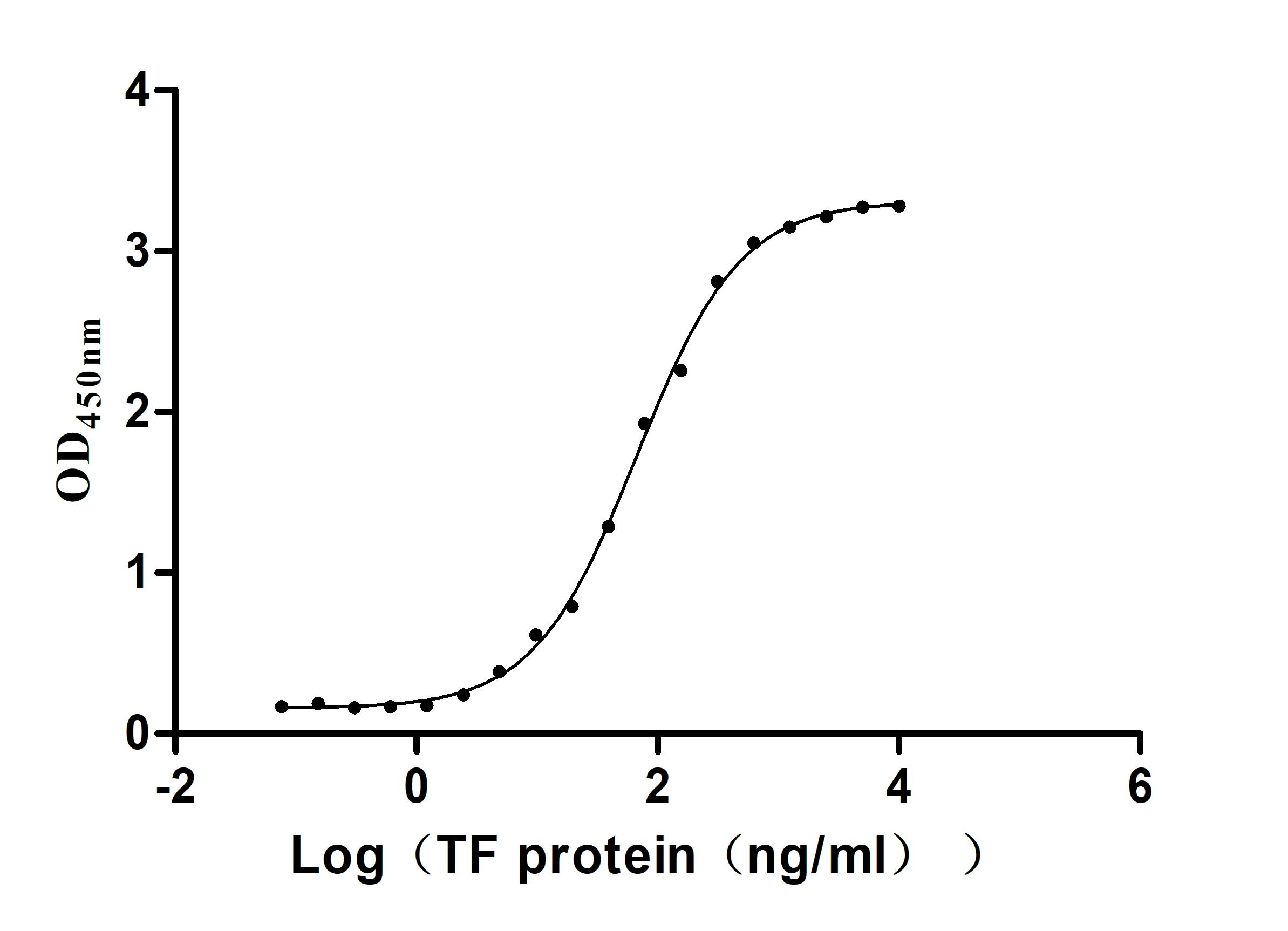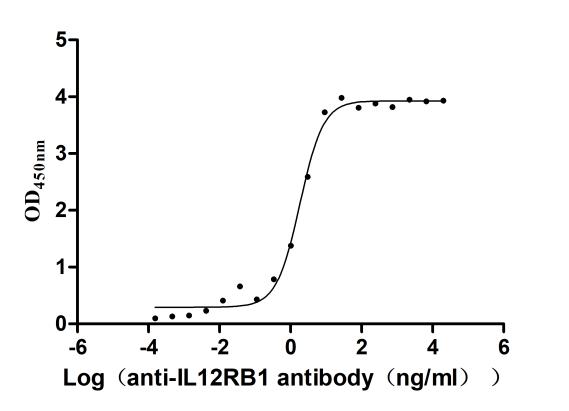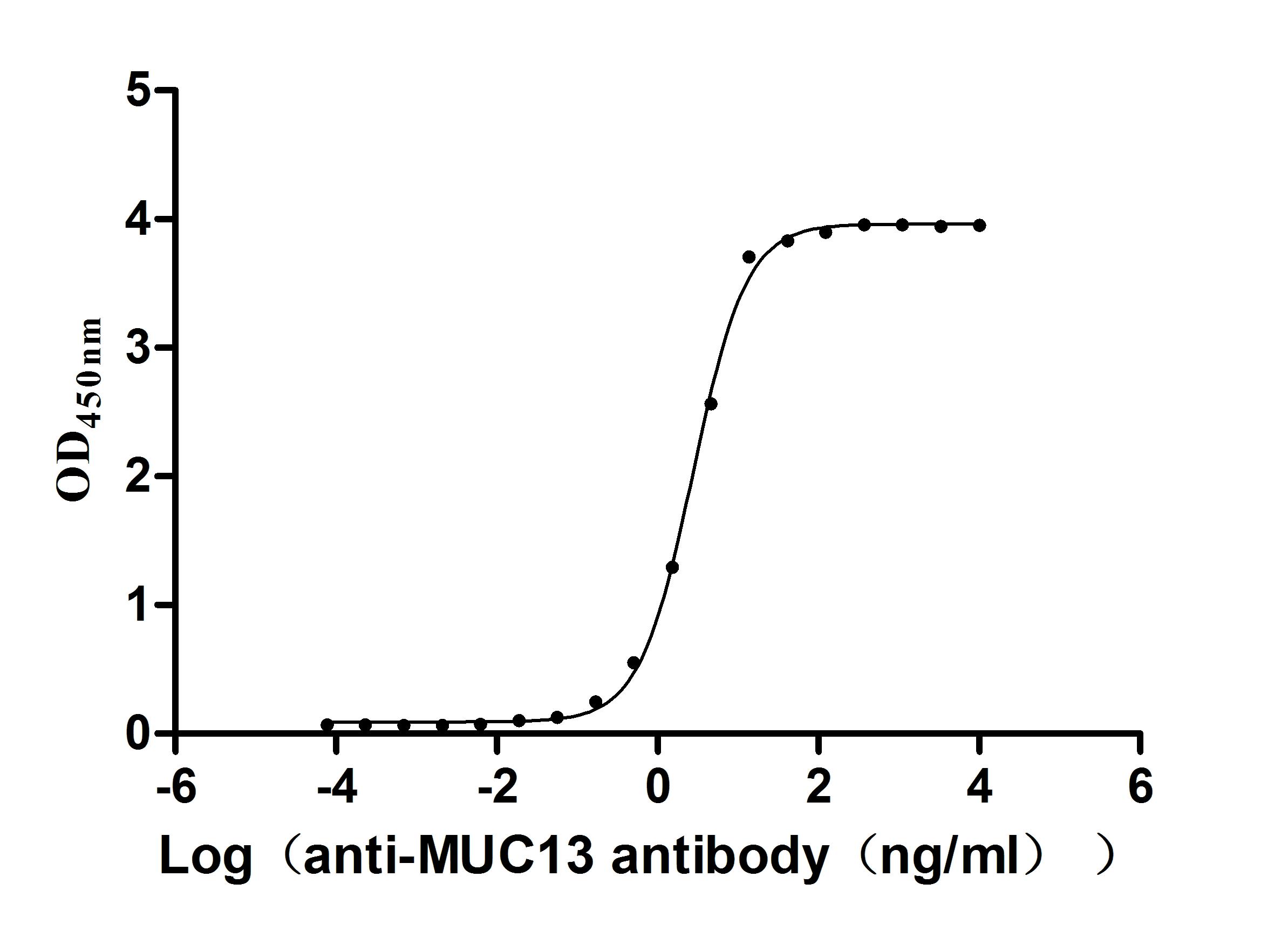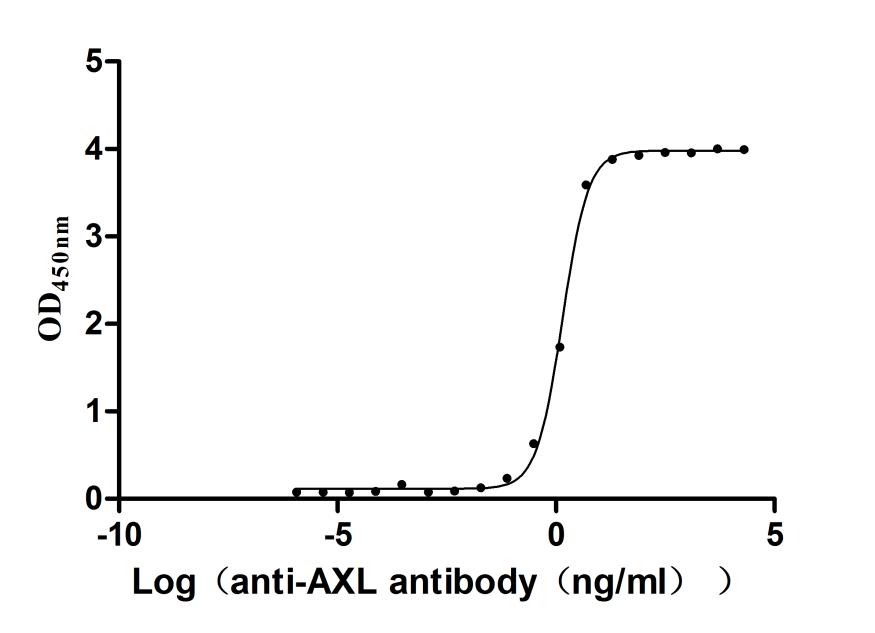Recombinant Mouse Follistatin (Fst)
-
货号:CSB-YP009024MO
-
规格:
-
来源:Yeast
-
其他:
-
货号:CSB-EP009024MO
-
规格:
-
来源:E.coli
-
其他:
-
货号:CSB-EP009024MO-B
-
规格:
-
来源:E.coli
-
共轭:Avi-tag Biotinylated
E. coli biotin ligase (BirA) is highly specific in covalently attaching biotin to the 15 amino acid AviTag peptide. This recombinant protein was biotinylated in vivo by AviTag-BirA technology, which method is BriA catalyzes amide linkage between the biotin and the specific lysine of the AviTag.
-
其他:
-
货号:CSB-BP009024MO
-
规格:
-
来源:Baculovirus
-
其他:
-
货号:CSB-MP009024MO
-
规格:
-
来源:Mammalian cell
-
其他:
产品详情
-
纯度:>85% (SDS-PAGE)
-
基因名:
-
Uniprot No.:
-
别名:FstFollistatin; FS; Activin-binding protein
-
种属:Mus musculus (Mouse)
-
蛋白长度:Full Length of Mature Protein
-
表达区域:30-344
-
氨基酸序列G NCWLRQAKNG RCQVLYKTEL SKEECCSTGR LSTSWTEEDV NDNTLFKWMI FNGGAPNCIP CKETCENVDC GPGKKCRMNK KNKPRCVCAP DCSNITWKGP VCGLDGKTYR NECALLKARC KEQPELEVQY QGKCKKTCRD VFCPGSSTCV VDQTNNAYCV TCNRICPEPS SSEQYLCGND GVTYSSACHL RKATCLLGRS IGLAYEGKCI KAKSCEDIQC GGGKKCLWDS KVGRGRCSLC DELCPDSKSD EPVCASDNAT YASECAMKEA ACSSGVLLEV KHSGSCNSIS EETEEEEEEE DQDYSFPISS ILEW
-
蛋白标签:Tag type will be determined during the manufacturing process.
The tag type will be determined during production process. If you have specified tag type, please tell us and we will develop the specified tag preferentially. -
产品提供形式:Lyophilized powder
Note: We will preferentially ship the format that we have in stock, however, if you have any special requirement for the format, please remark your requirement when placing the order, we will prepare according to your demand. -
复溶:We recommend that this vial be briefly centrifuged prior to opening to bring the contents to the bottom. Please reconstitute protein in deionized sterile water to a concentration of 0.1-1.0 mg/mL.We recommend to add 5-50% of glycerol (final concentration) and aliquot for long-term storage at -20℃/-80℃. Our default final concentration of glycerol is 50%. Customers could use it as reference.
-
储存条件:Store at -20°C/-80°C upon receipt, aliquoting is necessary for mutiple use. Avoid repeated freeze-thaw cycles.
-
保质期:The shelf life is related to many factors, storage state, buffer ingredients, storage temperature and the stability of the protein itself.
Generally, the shelf life of liquid form is 6 months at -20°C/-80°C. The shelf life of lyophilized form is 12 months at -20°C/-80°C. -
货期:Delivery time may differ from different purchasing way or location, please kindly consult your local distributors for specific delivery time.Note: All of our proteins are default shipped with normal blue ice packs, if you request to ship with dry ice, please communicate with us in advance and extra fees will be charged.
-
注意事项:Repeated freezing and thawing is not recommended. Store working aliquots at 4°C for up to one week.
-
Datasheet :Please contact us to get it.
相关产品
靶点详情
-
功能:Binds directly to activin and functions as an activin antagonist. Specific inhibitor of the biosynthesis and secretion of pituitary follicle stimulating hormone (FSH).
-
基因功能参考文献:
- These data suggest that activin-follistatin regulation may play a role during the development of Experimental autoimmune epididymo-orchitis. PMID: 28205525
- Uterine Fst-cKO mice demonstrate severe fertility defects and deliver only 2% of the number of pups delivered by control females. In Fst-cKO mice, the uterine luminal epithelium does not respond properly to estrogen and progesterone signals and remains unreceptive to embryo attachment by continuing to proliferate and failing to differentiate. PMID: 28559342
- Data suggest that the level of circulating follistatin is involved in testicular damage due to autoimmune orchitis; these studies were conducted using gene transfer to increase circulating levels of follistatin in experimental model of autoimmune orchitis. PMID: 28667125
- Surface plasmon resonance analysis showed no significant association between FS288 and AMHC , suggesting that FS288 indirectly regulates AMH signaling. Activin A, a direct target of FS288, did not itself induce reporter activity in P19 cells, but did prevent the FS288-induced increase in AMH signaling. Hence, local concentrations of FS288 and Activin A may influence the response of some cell types to AMH. PMID: 28500669
- Hypergravity affects follistatin levels in muscle through the vestibular system in mice. Follistatin may play some roles in the interactions between muscle and bone metabolism in response to gravity change. PMID: 28471505
- Fst promotes brown adipocyte characteristics in both white adipose tissue and brown adipose tissue depots in vivo through distinct mechanisms. PMID: 28324027
- Results showed activin-C and follistatin are differentially expressed during prostate development and suggested that the antagonistic property of follistatin is secondary to the action of activin-C. Study provides evidence to support a role of activin-C in prostate development and provides new insights in the spatiotemporal localization of activins and their antagonists during mouse prostate development. PMID: 28363632
- Oviducts of tghFST315 mice failed to coil, the myometrium was disorganised, endometrial gland number was reduced and oviducts and uteri contained abundant leukocytes. These studies show that follistatin is crucial to postnatal oviductal-uterine development and function. PMID: 24630125
- OVOL1-regulated Fst and SFRP1 affect hair inductive potency of neonatal dermal cells. PMID: 25827793
- This study assesses the regulation of activin A and follistatin in a murine myocardial ischaemia-reperfusion model. PMID: 25052838
- Results implicate a role of follistatin (Fst) in the induction of brown adipocyte character and regulation of energy metabolism. PMID: 24443561
- follistatin induces hair wave propagation and its level decreases in aging mice. PMID: 24618599
- Follistatin aids in maintaining proper somite size, and consequently sclerotome progenitor numbers, by preventing paraxial mesoderm from adopting an intermediate/lateral plate mesodermal fate in the Noggin-deficient state. PMID: 24514266
- Report role of activin A-myostatin-follistatin system on aging bone and muscle progenitor cells. PMID: 23178301
- Although it is a promising therapeutic tool in chronic or acute inflammatory conditions not caused by virulent pathogens, FS does not seem to increase the resistance to bacterial infections. PMID: 23143061
- Data from transgenic mice suggest that overexpression of follistatin negatively influences bone metabolism decreasing all measured biomechanical strength parameters in developing bone. PMID: 22311089
- These data indicate that the rapid increase in circulating activin A during LPS-induced inflammation is regulated at the posttranscriptional level. PMID: 22855279
- regulation of Smad3- and mTOR-dependent events by follistatin occurred independently of overexpression or knockout of myostatin, a key repressor of muscle development that can regulate Smad3 and mTOR signaling and that is itself inhibited by follistatin PMID: 22711699
- We conclude that testosterone stimulation of satellite cell proliferation and myogenic differentiation are associated with up regulation of Fst and inhibition of TGF-beta-signaling. PMID: 22138414
- follistatin stimulated myoblasts to express MyoD, Myf5, and myogenin, which are myogenic transcription factors that promote myogenic differentiation PMID: 21689628
- These results demonstrate that body composition and glucose homeostasis are differentially regulated by FST and FSTL3 and that their combined loss is associated with increased fat mass and insulin resistance despite elevated insulin production. PMID: 21546932
- gradual increase in muscle regeneration, production stimulated in the presence of necrosis PMID: 21416223
- the transition between stem cells and committed progenitors is neither sharp nor irreversible and GDF11, ACTbetaB and FST are crucial components of a circuit that controls both total cell number and the ratio of neuronal versus glial cells in this system PMID: 21852401
- Results show that FST is critical for normal regulation of germ cell nest breakdown and that loss of the FST303 and/or FST315 isoforms leads to excess primordial follicles with accelerated demise, resulting in premature cessation of ovarian function. PMID: 21106872
- Changes in hepatically metabolised follistatin during and after exercise are reported. PMID: 21068158
- Data show that follistatin mutant mice exhibit haploinsufficiency, with muscles of reduced size, a shift toward more oxidative fiber types, impairment of muscle remodeling in response to injury, and reduction in tetanic force production. PMID: 20810712
- link between mTOR and miRNA biogenesis; an mTOR-miR-1-HDAC4-follistatin pathway that regulates myocyte fusion during myoblast differentiation in vitro and skeletal muscle regeneration in vivo. PMID: 20566686
- The FST288-only isoform is sufficient for development. Loss of FST303 and FST315 isoforms results in fertility defects that resemble activin hyperactivity and premature ovarian failure. PMID: 20032047
- we studied the expression of follistatin in rat and mouse liver tumors as a possible mechanism to overcome activin growth control, 40% of the tumors displayed increased levels of follistatin mRNA when compared to tumor-surrounding liver tissue. PMID: 12203361
- up-regulation of the follistatin mRNA level in the small myotubes of the regenerating soleus as well as the down-regulation of the myostatin transcript level after denervation contribute to the differentiation process in denervated regenerating muscle. PMID: 12761853
- Data suggest that Follistatin antagonises Myostatin by direct protein interaction, which prevents Myostatin from executing its inhibitory effect on muscle development. PMID: 15136138
- germ cells in the ovarian cortex are almost completely lost in both Wnt4 and Fst null gonads before birth PMID: 15162500
- review with emphasis on s' works on paracrine and autocrine regulation in activities of Fst and Fstl3, regulation of gonadal development, and structural elements necessary for biological activities PMID: 15451564
- experiments provide evidence that GnRH stimulates follistatin through multiple signaling pathways PMID: 17482756
- repression of Sp1 transcriptional activity by PPARgamma is the underlying mechanism responsible for PPARgamma-mediated regulation of follistatin expression PMID: 18768463
- Antral hyperplasia in Gas-/- mice involves amplification of mucous cell lineages due to follistatin, suggesting its role in the development of antral gastric tumors. PMID: 18804092
- This review summarises the activin signal transduction pathways and the interactions between activins and other TGFbeta signalling systems during hair follicle formation, hair growth cycling, skin function and wound healing.[review] PMID: 18922734
- Keratinocyte-derived follistatin regulates epidermal homeostasis and wound repair. PMID: 19079322
- FoxL2 and Smad3 coordinately regulate follistatin gene transcription.( PMID: 19106105
- Satellite cell proliferation and both Mstn and Act inhibition are involved in the FS-induced muscle hypertrophy. PMID: 19435857
- This study examined the expression of myostatin and follistatin in Mdx mice and B10 mice; a temporary and coincident expression of follistatin and myostatin in both mouse strains, but this expression was significantly higher in Mdx mice. PMID: 19715499
收起更多
-
亚细胞定位:Secreted.
-
数据库链接:
KEGG: mmu:14313
STRING: 10090.ENSMUSP00000022287
UniGene: Mm.4913


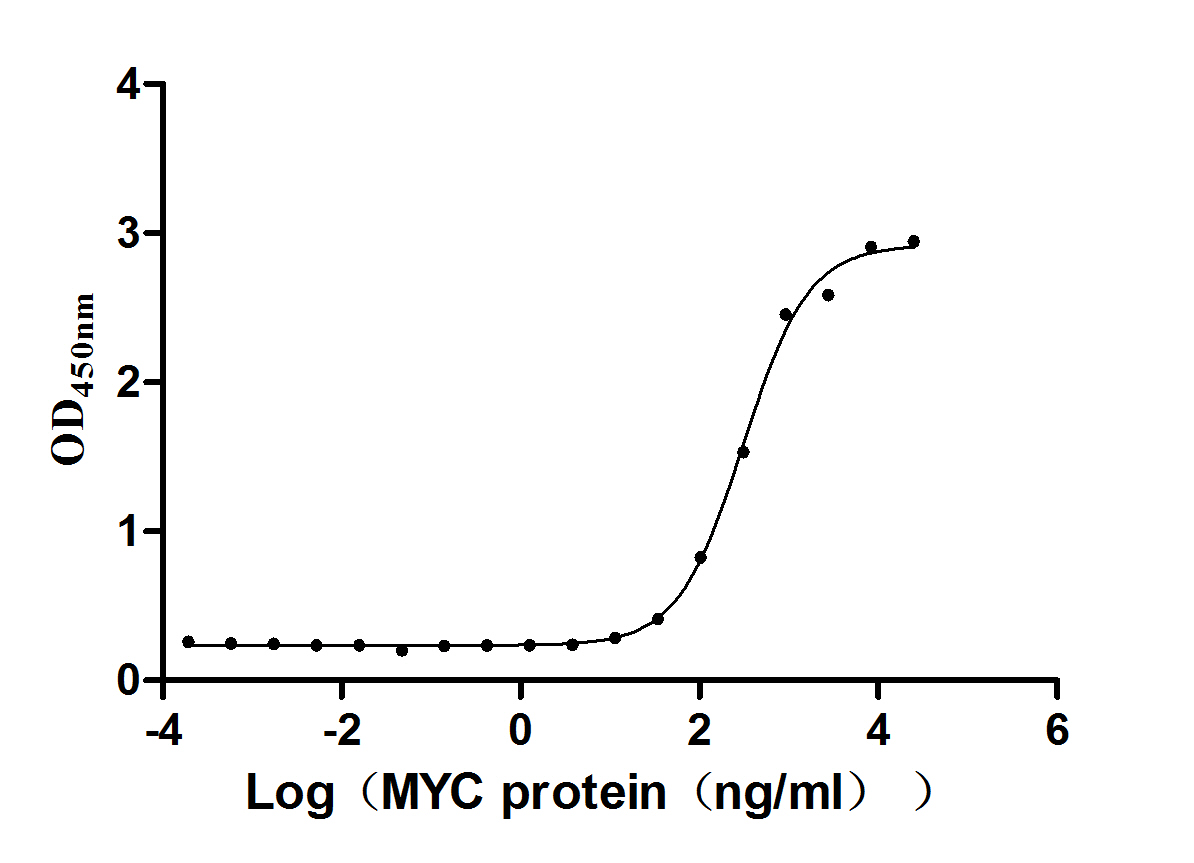
-AC1.jpg)
